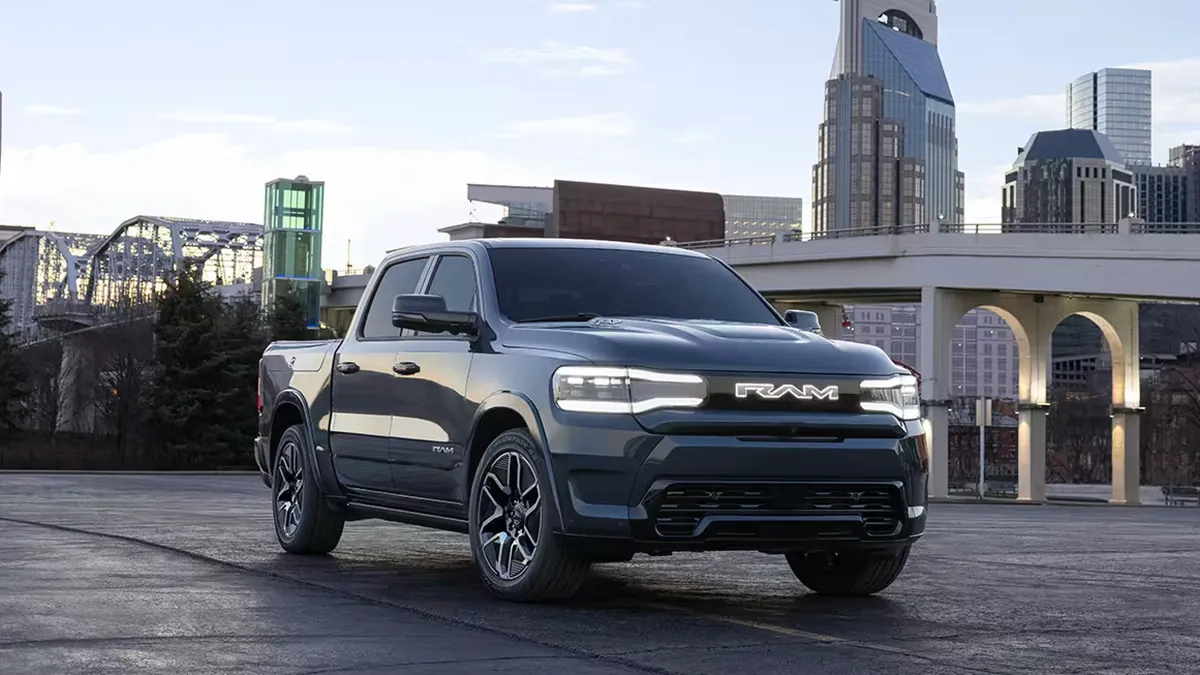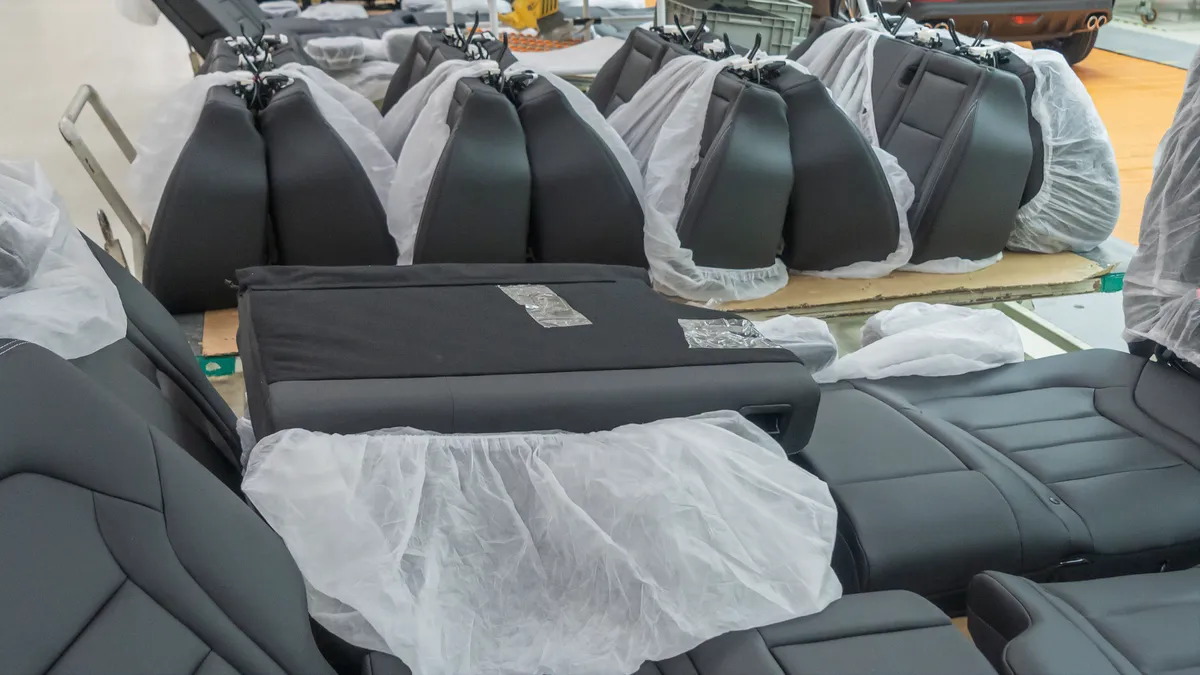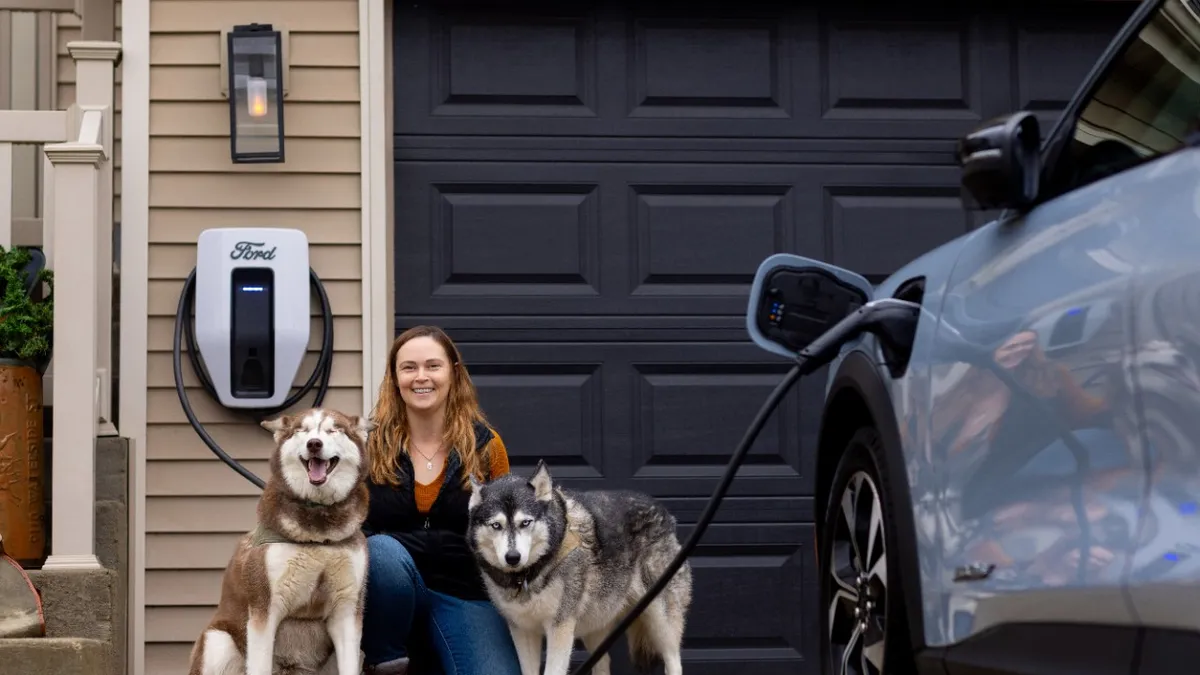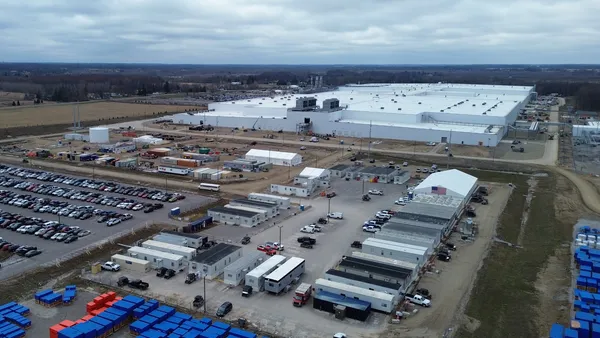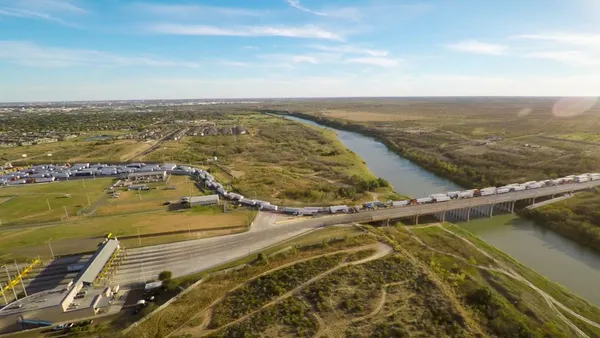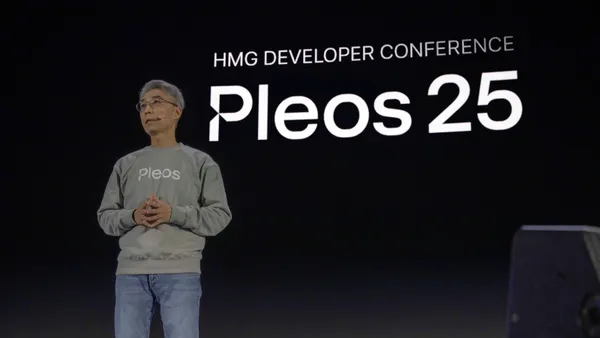Dive Brief:
- Stellantis plans to launch a demonstration fleet of electric Dodge Charger Daytona vehicles by 2026 to test new solid-state batteries developed by its strategic partner Factorial, the automaker announced in a press release Oct. 23.
- The purpose of the on-road testing is to validate the company’s battery technology in real-world operating conditions, as part of a longer term goal of commercializing solid-state batteries for Stellantis.
- Factorial's solid-state battery design offers significant advantages over traditional lithium-ion batteries, such as higher energy density, reduced weight and improved thermal stability to reduce fire risks. These batteries also have the potential to lower the costs of EVs over time, making them an attractive alternative to automakers.
Dive Insight:
Solid-state batteries, which contain no flammable liquid electrolyte, are considered to be among the next big breakthroughs for EVs. The design can significantly improve safety by reducing the risk of battery fires. But validation of solid-state batteries for commercialization and high-volume production has been a challenge, since the technology is still new.
Stellantis will utilize its new “STLA Large” global EV platform to test Factorial’s solid-state batteries, which is intended to underpin future high-volume electric SUVs and performance vehicles. The STLA Large platform is designed to support up to two million EVs globally and will feature 85 to 118 kilowatt hour battery packs for driving ranges up to 500 miles, according to Stellantis.
The fleet of Dodge Charger Daytona EVs will evaluate Factorial’s new “FEST” battery cells, which combines “a lithium-metal anode, quasi-solid electrolyte technology and an high-capacity cathode,” according to the company. The battery has a specific energy density of over 390 watt hours a kilogram, which is nearly 50% more than the typical energy density of current lithium-ion battery cells available to automakers, according to the University of Washington's Clean Energy Institute.
Using more energy dense batteries allows automakers to use smaller, less expensive battery packs in their EVs without sacrificing range or performance.
“This demonstration fleet is an important milestone in our partnership with Factorial,” Ned Curic, Stellantis' Chief Engineering and Technology Officer, said in the release. “By integrating Factorial’s innovative battery solution into the STLA Large platform, we are validating its potential to enhance our electric vehicle lineup, ensuring customers benefit from improved performance, longer driving ranges and faster charging times in the coming years.”
According to a January 2024 report from IEEE Spectrum, the adoption of solid-state batteries by automakers will depend on their performance, service life and costs compared to conventional EV batteries designs, such as lithium ion and lithium iron phosphate. However, the real-world performance of solid-state batteries has yet to be fully evaluated.
Stellantis invested $75 million in Factorial in 2021 as part of a strategic plan to secure batteries for future EV production. This investment was among several made by automakers in battery startups, including forming joint ventures with established battery manufacturers to produce battery cells at scale.
Factorial is also working with other automakers to commercialize solid-state EV batteries. The company has joint development agreements with Hyundai Motor Co., Kia Corp. and Mercedes-Benz, and expects to make its battery technology available to other automotive OEMs by decade’s end.
Last month, Mercedes-Benz and Factorial announced a lighter and more energy-dense solid-state battery dubbed the “Solstice,” which can extend the range of EVs up to 80% to around 600 miles compared to current lithium ion batteries, according to the companies.
“We believe solid-state technology can play a crucial role in enabling the next generation of EVs with improved performance and reduced costs, Factorial CEO Siyu Huang said in the release.
Volkswagen is also working on solid-state batteries. In July, its subsidiary PowerCo announced a licensing agreement with battery developer QuantumScape to mass produce cells using its proprietary solid-state design.



